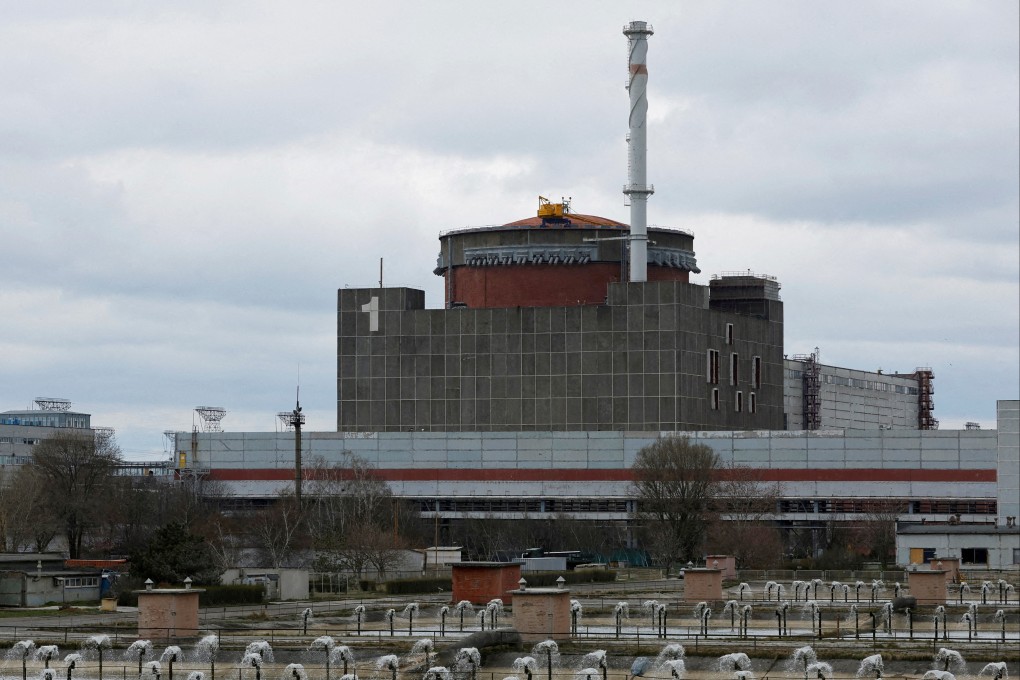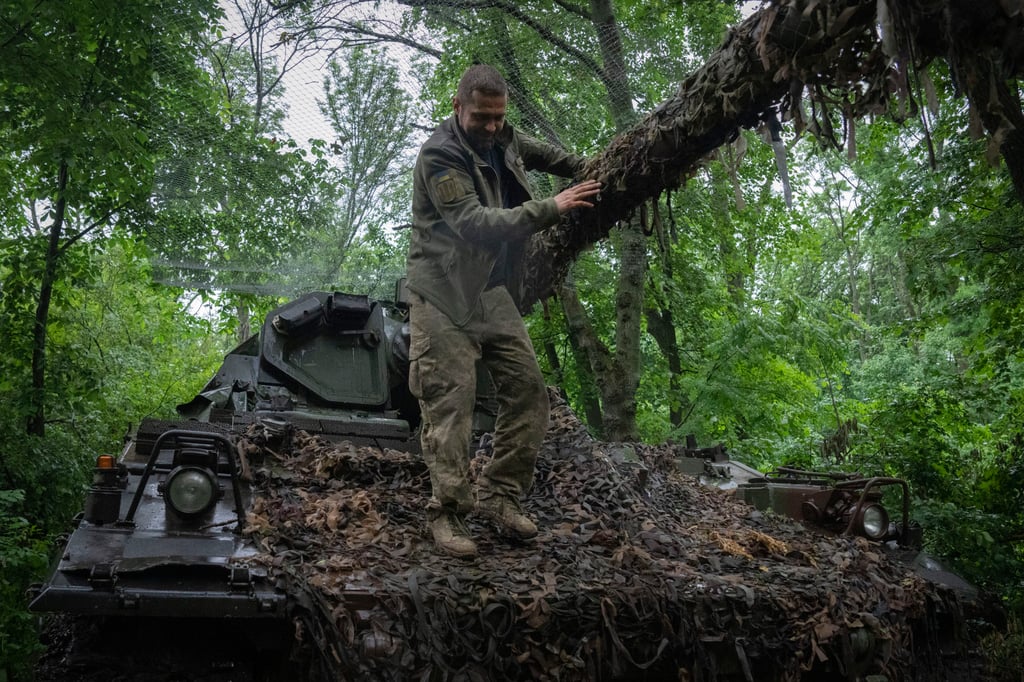Advertisement
Ukraine says Russia is plotting ‘a provocation’ at nuclear plant, offers no evidence
- Ukraine has said that Russian forces would strike the Zaporizhzhia plant and then report a radioactive leak, with the aim of disrupting a Ukrainian counteroffensive
- The claim comes as Moscow’s military in Ukraine braces for a looming counteroffensive by Kyiv’s forces
Reading Time:3 minutes
Why you can trust SCMP

Ukraine’s military intelligence has claimed, without offering evidence, that Russia is plotting a “large-scale provocation” at a nuclear power plant it occupies in the southeast of the country with the aim of disrupting a looming Ukrainian counteroffensive.
A statement released on Friday by the intelligence directorate of Ukraine’s defence ministry said that Russian forces would strike the Zaporizhzhia nuclear power plant, the biggest in Europe, and then report a radioactive leak to trigger an international investigation that would pause the hostilities and give the Russian forces the respite they need to regroup ahead of the counteroffensive.
To make that happen, Russia “disrupted the rotation of personnel of the permanent monitoring mission” of the UN’s International Atomic Energy Agency (IAEA) that was scheduled for Saturday, the statement said. It did not offer evidence to back up any of the claims.

The IAEA said in an emailed response to Associated Press that it did not have any immediate comment on the allegations, and Russian officials did not immediately comment on the Ukrainian claims.
Advertisement
The claim mirrors similar statements Moscow regularly makes, alleging without evidence that Kyiv is plotting provocations involving various dangerous weapons or substances in order to then accuse Russia of war crimes.
It comes as Moscow’s military in Ukraine braces for a looming counteroffensive by Kyiv’s forces, which has not started yet but could begin “tomorrow, the day after tomorrow or in a week,” the secretary of Ukraine’s National Security and Defence Council, Oleksiy Danilov, told the BBC in an interview on Saturday.
Advertisement
The Zaporizhzhia power plant is one of the 10 biggest nuclear plants in the world. It is located in the partially occupied Zaporizhzhia region in southeastern Ukraine. The plant’s six reactors have been shut down for months, but it still needs power and qualified staff to operate crucial cooling systems and other safety features.
Fighting near it repeatedly disrupted power supplies and has fuelled fears of a potential catastrophe like the one at Chernobyl, in northern Ukraine, where a reactor exploded in 1986 and spewed deadly radiation, contaminating a vast area in the world’s worst nuclear disaster.
Advertisement
Select Voice
Select Speed
1.00x